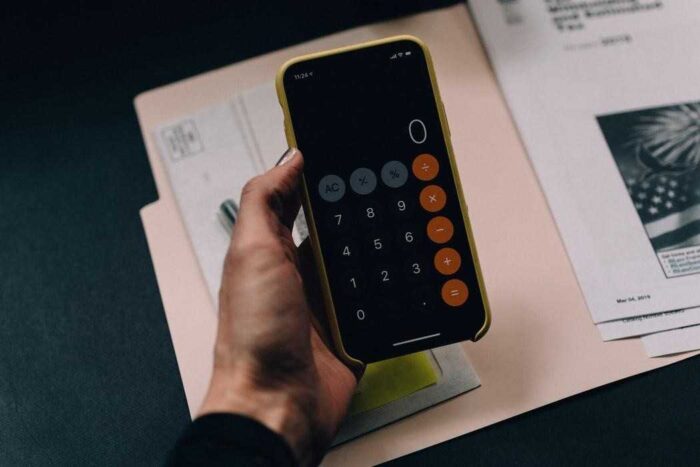
Calculate
In an uncertain economic climate, navigating your finances is likely causing added stress and anxiety. As we’re thrown into a new reality, we have to learn and re-learn what we thought we knew about budgeting to ride the wave. More than ever, it’s important to know what tools and resources are available — with the right knowledge in-hand, you can confidently navigate your finances and come out of the pandemic with healthy saving habits.
Find the Right Budget Tool
No matter where you fall on the scale — whether you’re a novice or expert saver — there is a budget tool available to fill your criteria. If you’re more traditional, a simple calendar and calculator will be all you need to allocate your income to its necessary expenses. However, you’ll likely want to invest your time in a modern-day approach — aka a budget app. Their accessibility and user-friendly interface have drawn millions of users, changing the way they think about their finances.
Budget apps offer an innovative new way to manage your money. If you previously relied on short-term relief, perhaps in the form of a payday loan, a budget app can help you manage and prioritize your debts. Payday loans from reliable vendors such as GoDay are great options if you need funds right away without the red tape often associated with traditional lending. But be sure to pay that debt off before any others.
Decide Which Debts Take Priority
It’s unlikely that you’ll be able to pay off all of your debts in the current climate. Prioritizing your debt should be an important part of your overall budget. Unsure where to begin? First, look at any debts you have that are affecting your family’s expenses or your earning ability — this will likely be car loans, rent, utilities, or any child or spousal support payments.
The middle-ground should have less impact if they aren’t paid immediately —such as student loans — but will impact your situation if ignored for too long. Lastly, the low-priority list would likely include lines of credit or medical expenses. These should be only be paid off right away if they aren’t impacting your ability to relieve your high-priority debts.
Examine Your Spending Habits
The current economic climate isn’t going to leave much room for unnecessary spending. If you fall under the work-from-home category, you certainly won’t need to purchase any new clothes, but managing subscriptions will be an important point of consideration.
If your earnings have been affected by the pandemic, now’s the time to think strategically —how many subscription services do you need? Are they hindering your ability to pay off debts or contribute to your savings? While you may not be venturing into town to enjoy dinner, you might find yourself with higher delivery costs or grocery bills. Keep a close eye on where your money is now being allocated.
Build Your Emergency Fund
While it’s considered one of the most important budgeting tactics overall, in a tumultuous economy you’ll be thankful you have an emergency fund to fall back on. If you haven’t set up an emergency savings account, it must become one of your top priorities. While you may be unable to put money into your retirement accounts or your current investments, having tangible funds on-hand for any unexpected expenses is the way to go. Keep in mind, you should be aiming for three-to-six months of expenses set aside.
Unexpected economies are likely to present us with unforeseen expenses as we adjust to our new normal. Hold yourself accountable when it comes to your finances and allocate your money where it needs to go — rather than making unnecessary purchases that can wait until you have true disposable income.
Taking the right steps now will set you up for long-term success, and you’ll be in a position to enjoy your money while simultaneously making it work in your favor.






You must be logged in to post a comment.